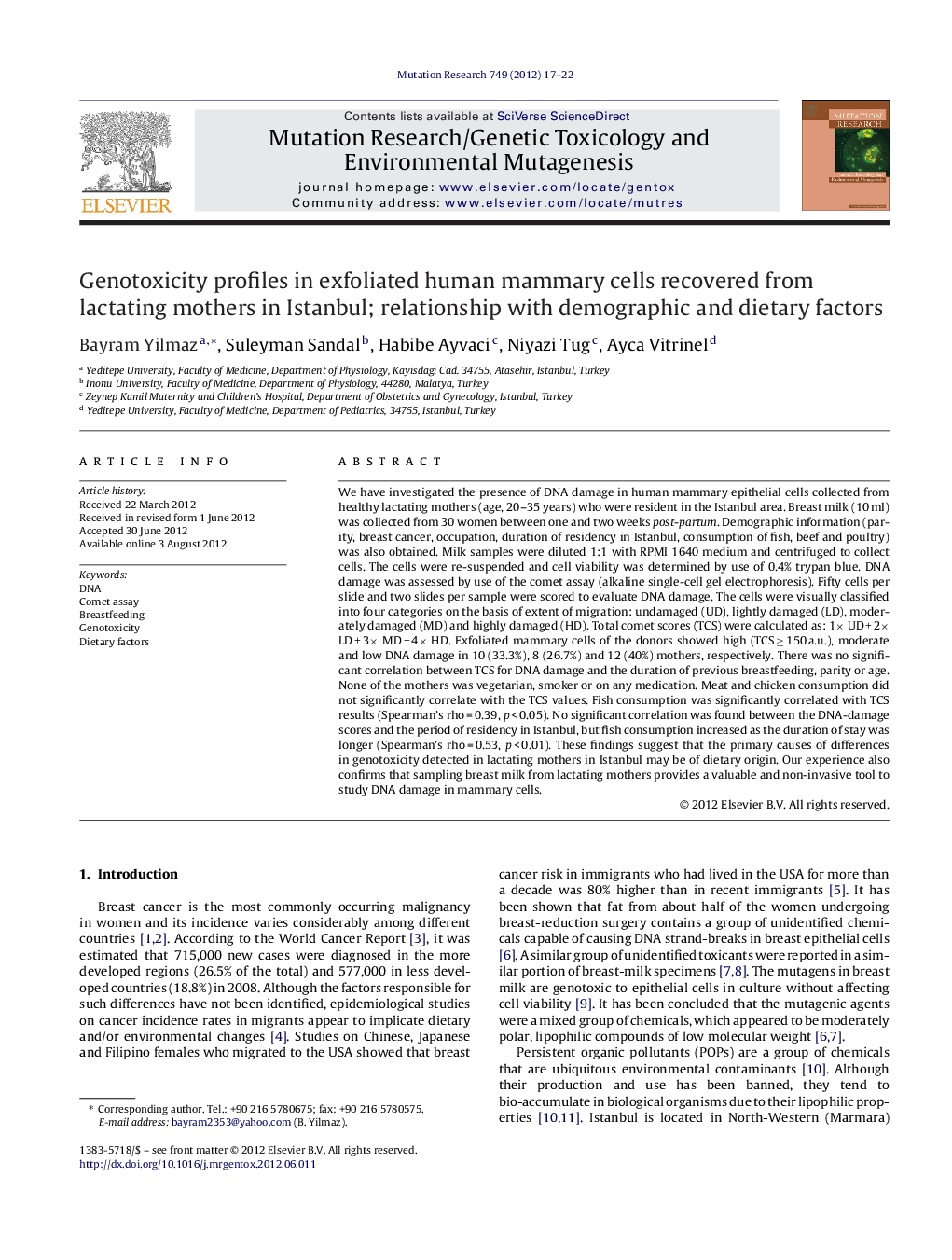| Article ID | Journal | Published Year | Pages | File Type |
|---|---|---|---|---|
| 8456549 | Mutation Research/Genetic Toxicology and Environmental Mutagenesis | 2012 | 6 Pages |
Abstract
We have investigated the presence of DNA damage in human mammary epithelial cells collected from healthy lactating mothers (age, 20-35 years) who were resident in the Istanbul area. Breast milk (10 ml) was collected from 30 women between one and two weeks post-partum. Demographic information (parity, breast cancer, occupation, duration of residency in Istanbul, consumption of fish, beef and poultry) was also obtained. Milk samples were diluted 1:1 with RPMI 1640 medium and centrifuged to collect cells. The cells were re-suspended and cell viability was determined by use of 0.4% trypan blue. DNA damage was assessed by use of the comet assay (alkaline single-cell gel electrophoresis). Fifty cells per slide and two slides per sample were scored to evaluate DNA damage. The cells were visually classified into four categories on the basis of extent of migration: undamaged (UD), lightly damaged (LD), moderately damaged (MD) and highly damaged (HD). Total comet scores (TCS) were calculated as: 1à UD + 2à LD + 3à MD + 4à HD. Exfoliated mammary cells of the donors showed high (TCS â¥Â 150 a.u.), moderate and low DNA damage in 10 (33.3%), 8 (26.7%) and 12 (40%) mothers, respectively. There was no significant correlation between TCS for DNA damage and the duration of previous breastfeeding, parity or age. None of the mothers was vegetarian, smoker or on any medication. Meat and chicken consumption did not significantly correlate with the TCS values. Fish consumption was significantly correlated with TCS results (Spearman's rho = 0.39, p < 0.05). No significant correlation was found between the DNA-damage scores and the period of residency in Istanbul, but fish consumption increased as the duration of stay was longer (Spearman's rho = 0.53, p < 0.01). These findings suggest that the primary causes of differences in genotoxicity detected in lactating mothers in Istanbul may be of dietary origin. Our experience also confirms that sampling breast milk from lactating mothers provides a valuable and non-invasive tool to study DNA damage in mammary cells.
Related Topics
Life Sciences
Biochemistry, Genetics and Molecular Biology
Cancer Research
Authors
Bayram Yilmaz, Suleyman Sandal, Habibe Ayvaci, Niyazi Tug, Ayca Vitrinel,
